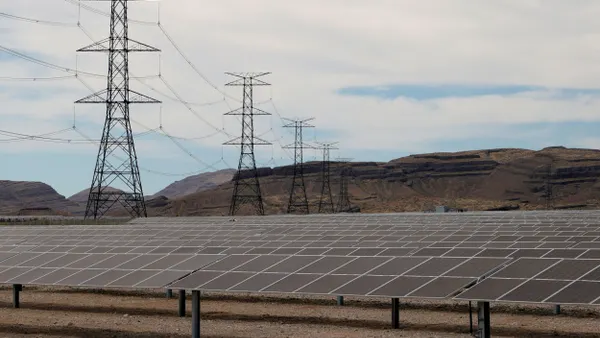Dive Brief:
- The decline of coal-fired power could mean the fuel generates just 11% of the United States' electricity by 2030, according to new analysis by Moody's Investors Service.
- In 2018, coal made up 27.4% of the country's generation, according to the U.S. Energy Information Administration. Moody's said it maintains a a stable outlook for the coal industry for the next 12-18 months, but expects utility demand to "fall significantly" over a longer horizon.
- Coal companies will likely turn to increased exports as gas-fired generation and renewables displace demand for the dirtier fuel, according to the report. But the firm said that is an imperfect solution, with cash flows from exports expected to be "volatile" as Asia demand reacts to the changing economics of coal-fired power.
Dive Insight:
Companies operating in the Powder River Basin in Wyoming and Montana will be hardest hit by the shifts, according to Moody's, but long-term shifts "will ripple across all coal basins and present a significant challenge for the coal industry."
"[D]espite regulatory easing in recent years," utility demand for coal "will erode significantly" from 2020 to 2030, Moody's report concludes.
As recently as 2008, coal was roughly half the United States' generation. But Moody's paints a bleak outlook for the sector, which it predicts will be overrun largely by natural gas domestically.
"We expect that new natural gas-fired generation, and to a much lesser extent renewable energy, will replace most of the thermal-coal electric-generation capacity heading into retirement," the firm said in its July 10 research note.
Moody's also said it does not expect an increase in the capacity factor of the coal-fired units that remain in service, which will ultimately result in a "significant decline in the domestic demand for thermal coal."
"The destruction of that demand will be too significant for the coal industry to replace just through greater participation in other markets, such as industrial or home-heating uses, or by increased exports," Moody's Vice President Benjamin Nelson said in a statement.














